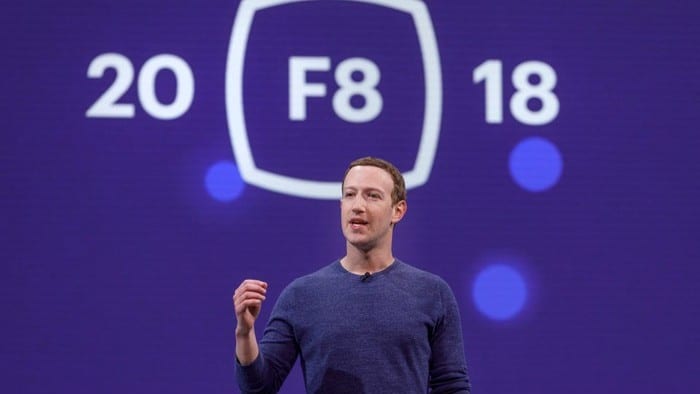This article was originally published on Fool.com. All figures quoted in US dollars unless otherwise stated.
Facebook (NASDAQ: FB) blew away estimates in its second-quarter earnings report. Revenue jumped 56% year over year to $29.1 billion, beating expectations, while earnings per share doubled from the lockdown-afflicted quarter a year ago to $3.61, ahead of the consensus at $3.02. In spite of that strong performance, Facebook share prices fell 4% on the results as its growth lagged that of Google-parent Alphabet and as it said it expected revenue growth to decelerate significantly in the second half of the year. The second-quarter results were revealing in more ways than just the headline numbers, however. Let's take a look at three of the biggest takeaways from the report.1. The end of IDFA wasn't a big deal
For a long time, Facebook had relied on identity tracking tools known as Identity for Advertisers to help personalize ads. With its rollout of iOS14, Apple gave users the ability to opt out of ad tracking, essentially killing IDFA. Facebook CEO Mark Zuckerberg had warned about this in dire terms back on the January earnings call, saying back then: "Apple has every incentive to use their dominant platform position to interfere with how our apps and other apps work, which they regularly do to preference their own. This impacts the growth of millions of businesses around the world, including with the upcoming iOS14 changes, many small businesses will no longer be able to reach their customers with targeted ads." Chief operating officer Sheryl Sandberg said that if personalized ads disappeared entirely, advertisers would lose 60% of their website sales. Based on those forecasts, it seemed like Apple's new policy, which rolled out at the end of April, was going to have a dramatic effect on Facebook's performance, but as the quarterly results show, that wasn't the case. IDFA also barely warranted a mention on this earnings call. CFO David Wehner did say he expected the headwinds from the ad tracking transparency policy to increase, but based on the Q2 performance and the adjustments Facebook has made in ad tracking, the impact from the end of IDFA seems unlikely to be material.2. Mark Zuckerberg will see you in the metaverse
Zuckerberg had laid out his view of the future on previous earnings calls, saying that the dominant computing platforms have historically shifted every 15 years -- from personal computers to the internet to mobile technology. The next computing platform he believes will be virtual reality, and that is why Facebook is investing heavily in Oculus and other VR tools at Facebook Reality Labs. However, Zuckerberg went even deeper this time around, describing a "metaverse," or a digital world where people will interact with each other in the future. The Facebook chief described it as:...[a] virtual environment where you can be present with people in digital spaces. You can kind of think about this as an embodied internet that you're inside of rather than just looking at. We believe that this is going to be the successor to the mobile internet.Facebook and others must build this world before they can monetize it, but there is plenty of potential for monetization, including ads, e-commerce, and the potential for a creator platform. Right now, Oculus and Facebook Reality Labs are among the biggest focuses of its research and development spending, so investors should expect big things in this area in the coming years.
3. Take guidance with a grain of salt
Facebook didn't give specific guidance, but investors reacted poorly to its warning about a slowdown in revenue growth. Naturally, the social media titan was expected to put up slowing year-over-year growth after it lapped the weakest quarter in the pandemic, but it's also worth remembering that Facebook has a habit of sandbagging its guidance for all kinds of reasons, including limits on ad load, IDFA, regulatory pressure, or slowing user growth. It almost always puts up impressive growth regardless. This time around, Wehner said two-year revenue growth rates would decelerate modestly in the second half of the year. In the first quarter, its two-year revenue growth rate was 74% and in Q2 it was 72%. If that trend continued, it would be 70% in the third quarter and 68% in the fourth quarter. That would imply 40% revenue growth in the third quarter and 26% in the fourth quarter. Those are still very strong numbers, and Facebook could easily top those if the economic recovery continues to be strong. The company also said its expense would be higher in the second half of the year, but it's still on track to make about $25 billion in operating income based on the numbers above and its spending forecast, which is better than the $23.7 billion it made in the first half of the year. Whatever happens, there's no reason to overthink guidance here. Management called the macro environment "very strong" on the call, and the results back that up. With IDFA nearly a non-factor and the metaverse gradually moving into focus, Facebook has no plans to slow down anytime soon. While the 4% share price drop may be disappointing, there's no reason for long-term investors to change their thesis here.This article was originally published on Fool.com. All figures quoted in US dollars unless otherwise stated.









